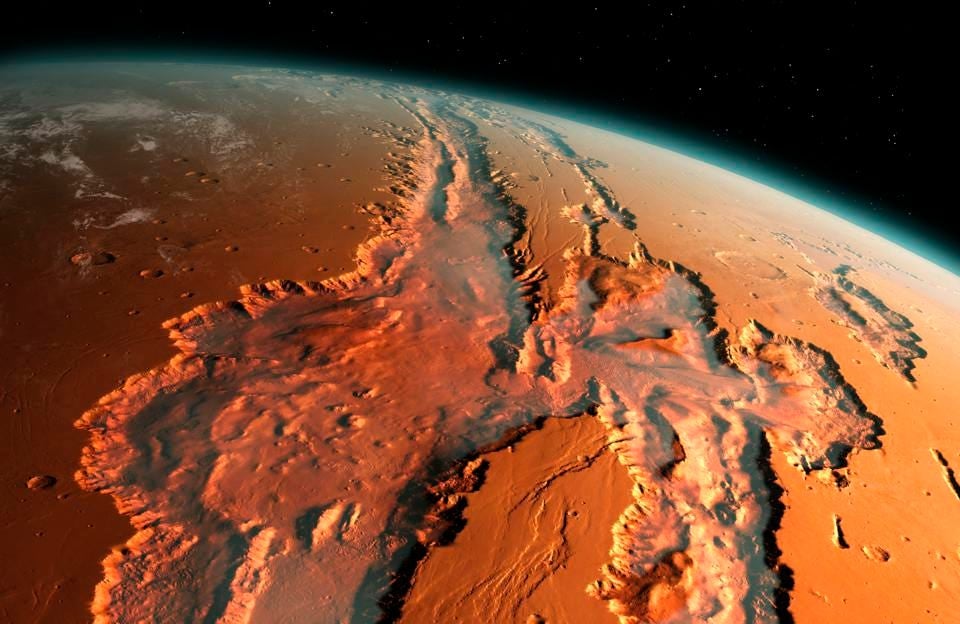Most scientists agree that Mars had water at some point in its history, but how much of that water was present on the Red Planet’s surface is still a matter of debate to this day.
Where a team of researchers from the University of Copenhagen has discovered that when Mars was a small planet ‘in its infancy’, it was hit by many icy asteroids, carrying huge amounts of water, amino acids and other organic chemicals known to be needed to create life.
Water on Mars
Researchers made this startling discovery by analyzing a billion-year-old meteorite that was once part of the original crust of Mars and, because its surface moves no differently than the surface of planet Earth, does not contain tectonic plates, which allows its outer surface to keep track of the oldest dating.
Where analysis of this meteorite revealed that up until 4.5 billion years ago, the surface of Mars had enough water on its surface to cover the entire planet in an ocean with a depth of 300 meters, said the lead author of the study and director of the Center for Stars and Planets at the University of Copenhagen, Professor Martin Pizarro: ‘At that time, Mars was subject to a collision of many ice-filled asteroids, which we estimate to have occurred within the first 100 years from the evolution of this planet, but what’s also interesting is that those asteroids carried biologically important organic molecules in addition to ice and water.” .
Mars collides with another planet
And Pizarro added: “After this period, something catastrophic happened to the life that was probably on the surface of planet Earth, because we believe that there was a massive collision between it and another planet the size of Mars, since it was an active collision that led to the formation of the current Earth-Moon system, which probably wiped out all possible life forms at that time even on planet Earth.
These results point to a strong possibility that conditions conducive to life already existed on Mars, long before it existed on Earth.

